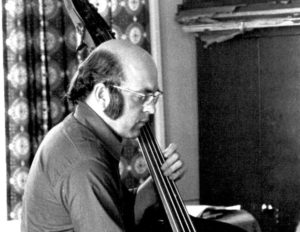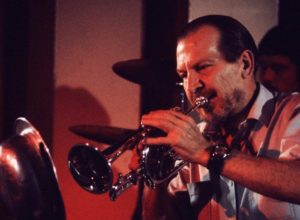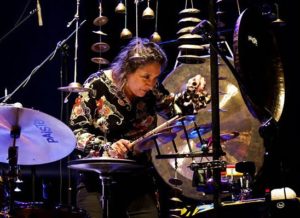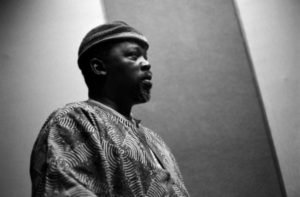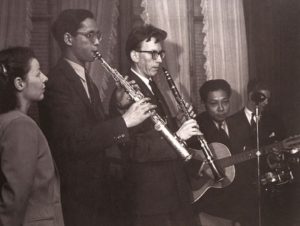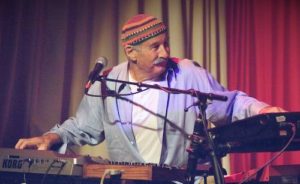Joe Zawinul
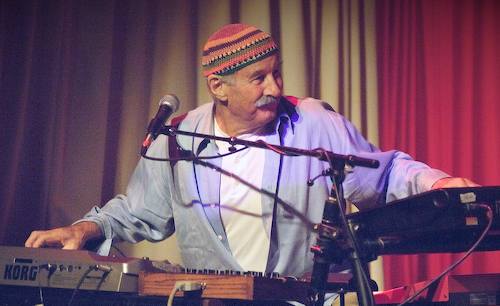
Austrian Joe Zawinul (1932-2007) was perhaps the most influential figure in establishing synthesizers and electric piano in jazz during the 1970s. His grandmother was a gypsy, his grandfather a truck driver, and his father a weight lifter. His early years were spent on a farm, and his start in music came from playing gypsy songs by ear on the accordion from the age of six. At seven he studied at the Konservatorium Wien on piano, violin and clarinet. He and a schoolfriend, Thomas Klestil, would sneak in to the cinema to see the 1943 film ‘Stormy Weather’, inspiring in both of them a love of jazz. Some 50 years later, Klestil would succeed Kurt Waldheim as president of Austria in 1992. In 1952, Zawinul was good enough to join Hans Koller, the country’s leading jazz figure of the day, recording with Koller’s Austrian All Stars in 1954. In 1959, Zawinul won a scholarship to study at Berklee College of Music in Boston, but had barely been in USA for a week before he got a job with Maynard Ferguson‘s Birdland Dream Band, in which he met saxophonist Wayne Shorter. He worked as Dinah Washington’s accompanist for two years from 1959 to 1961, before joining Cannonball Adderley, with whom he would stay throughout the 1960s. During his time with Adderley, he contributed a number of orginal compositions, including ‘Mercy, Mercy, Mercy’, which would garner the group a Grammy for best instrumental performance.
in 1969, Zawinul was invited by Miles Davis to contribute music for his next album and offered up ‘In A Silent Way’, a title Adderley had come up with having intended on recording the piece himself, before Zawinul gave it to Davis. On the album, named after the Austrian’s composition, he was one of three musicians playing electric piano – the other two were Herbie Hancock and Chick Corea. Also in the lineup were Wayne Shorter, John McLaughlin, Dave Holland and Tony Williams. Within six month of the In A Silent Way sessions, Zawinul was back with Davis, recording Bitches Brew, where he worked with Brazilian percussionist Airto Moreira for the first time. In 1971, Zawinul, Moreira and Shorter, together with Miroslav Vitouš and Alphonse Mouzon formed a new group, Weather Report, which released its debut album later that year. Initially the band featured acoustic piano and bass as often as electric and was steeped in the avant garde. With Alphonso Johnson coming in on bass guitar for Vitouš in 1974, the band began to become more groove-based. Critically acclaimed albums Black Market (1976) and Heavy Weather (1977) brought in fretless bass player Jaco Pastorius and drummer Alex Acuña. The latter album kicked off with another hit Zawinul composition ‘Birdland’, which would become the band’s signature tune. Weather Report continued until 1986 with Shorter and Zawinul remaining the only constants. Other significant band members included drummers Peter Erskine and Omar Hakim and bassist Victor Bailey.
In 1988, Zawinul formed a new jazz fusion band, The Zawinul Syndicate, with guitarist Scott Henderson, bassist Abraham Laboriel Jr and Acuña. With shifting lineups (including Richard Bona) the band continued into the 2000s, and were a festival favourite. Between in 2004, he opened his own jazz club in Vienna, called Joe Zawinul’s Birdland, but his death in 2007 and financial difficulties led to the club closing in 2008. Through his work on Miles Davis’ early electric albums and then with Weather Report, there are few figures more influential than Zawinul in the world of jazz fusion.
Key Recordings:
With Cannonball Adderley, Miles Davis
Weather Report (Columbia 1971)
Heavy Weather (Columbia 1977) with Weather Report
The immigrants (Columbia 1988) with The Zawinul Syndicate
